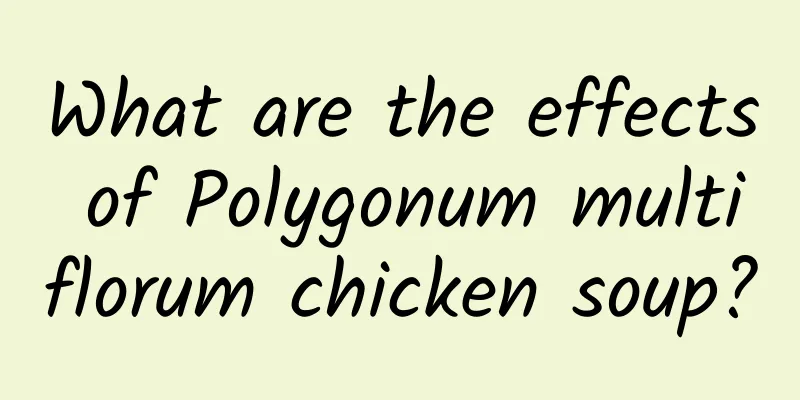The efficacy and function of bitterwood leaves

|
The world is full of wonders, and Chinese medicinal materials are also varied and varied. Here I would like to introduce to you a Chinese medicinal material, bitter wood leaf. [Source] Medicinal material source: The leaves of the plant Simaroubaceae. [Original form] Quercus, deciduous shrub or small tree, 7-10m high. The bark is gray-black, the young branches are gray-green, glabrous, and have obvious yellow lenticels. Odd-pinnate compound leaves are alternate, often clustered at the ends of branches, 20-30cm long; leaflets are 9-15, ovate-lanceolate to broadly ovate, 4-10cm long, 2-4cm wide, acuminate at the apex, broadly cuneate at the base, asymmetrical on both sides, with irregular serrations at the margins; dichotomous cymes are axillary, with a peduncle up to 12cm long, densely pubescent; flowers are polygamous, yellow-green; sepals are 4-5, ovate, pubescent; petals are 4-5, obovate, about twice as long as sepals; stamens are 4-5, inserted at the base of a 4-5-lobed disk; female flowers are smaller than male flowers, with an ovate ovary, 4-5 chambers, 4-5 styles, twisted and embracing each other, and fused at the base. The drupe is obovate, fleshy, blue to red, 3-4 in number, and has a persistent calyx at the base. The flowering period is April-May, and the fruiting period is August-September. [Habitat distribution] Ecological environment: Grown in moist and fertile mountains below 2400m above sea level, forest edges, streams, roadsides, etc. [Properties] Identification of properties: The leaves are odd-pinnate compound leaves, easy to fall off; the leaflets are ovate-oblong or ovate-lanceolate, 4-16cm long and 1.5-6cm wide; the apex is sharp, the base is oblique or slightly rounded, nearly sessile, and the petiole is pubescent; the margin is bluntly serrated, the leaf surface is usually green, some are light purple-red, and there are pubescent leaves along the midrib. It has a faint smell and tastes extremely bitter. [Identification] Take 2g of crude powder of this product, add 20ml of ethanol, reflux on a water bath for 1h, filter while hot, add a small amount of activated carbon to the filtrate, decolorize it with warm heat, and filter it. The filtrate is subjected to the following tests: 1. Take 2 drops of the filtrate and place them on filter paper, evaporate the ethanol, and observe under ultraviolet light. It will show blue fluorescence, and blue-green fluorescence when it comes into contact with alkaline solution. 【Nature and flavor】 Bitter; Cold; Slightly toxic 【Functions and indications】 Clears away heat and detoxifies; dries dampness and kills insects. Mainly used for sores, furuncles, carbuncles, swellings, tinea corporis, burns, and bleeding from trauma [Usage and Dosage] For external use: take appropriate amount, decoct in water for washing; grind but not sprinkle; or mix and apply; or crush fresh product and apply. 【Excerpt】 Chinese Materia Medica I believe that through the detailed introduction of bitter wood leaves in this article, everyone can understand the efficacy and medicinal properties of bitter wood leaves. I hope this helps you all. |
<<: The efficacy and function of Koelreuteria paniculata
>>: The efficacy and function of croaker
Recommend
The efficacy and function of hibiscus
There are so many medicinal herbs in the world, a...
The efficacy and function of halogen chrysanthemum
Chinese medicine has different effects on our bod...
From becoming famous overnight to being euthanized, what did Freya the walrus experience in her life?
Swimming in the sea, diving to eat seafood, lying...
What medicine is good for men who have frequent nocturia?
There are many reasons why sleep is affected, inc...
The specific effects of Guanzhong
It is normal that no one knows what Guanzhong is,...
The output in a fight depends entirely on "roaring". Every time you read its name, you are practicing your voice.
They are called red howler monkeys. Every time I ...
Shenzhou 14 astronauts' first spacewalk! What's different about this spacewalk?
September 1st 19:09 Astronauts Chen Dong and Liu ...
Ozon, the Russian version of Amazon: Ozon's revenue in 2012 reached $492 million and aims to cover 80% of the Russian e-commerce market
June 12, 2013 The CEO of Ozon, the "Russian ...
The efficacy and function of round-leaved Chinese tallow tree
As people's living standards continue to impr...
Do you remember the birch looper in the junior high school biology textbook? Its larvae use their skin to "see" the world
Boas once said that eyes are the windows to the s...
The efficacy and function of southern snakehead
For the Chinese medicinal material such as Snakeh...
Drinking vinegar can soften blood vessels? What you really need to do is this...
gossip "Drinking vinegar can soften blood ve...
The effects and functions of gall
Traditional Chinese medicine is very helpful in t...
The efficacy and function of hibiscus
There are many kinds of common Chinese medicinal ...
Rhodiola Rosea Capsules
Rhodiola rosea has a very good health-preserving ...









